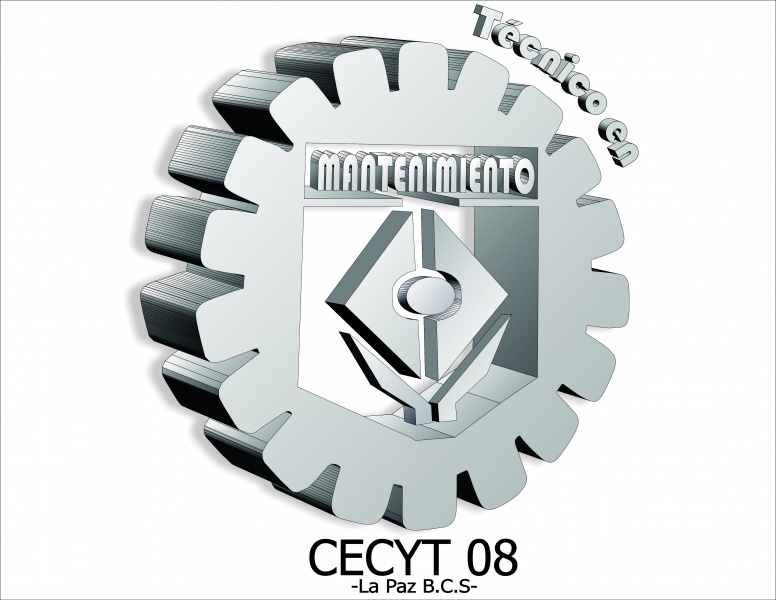Si buscas
hosting web,
dominios web,
correos empresariales o
crear páginas web gratis,
ingresa a
PaginaMX
Por otro lado, si buscas un generador de códigos qr ingresa al Creador de Códigos QR más potente que existe
Si estás buscando productos para sublimación de excelente calidad, te recomendamos a uno de los mejores distrbuidores de productos para sublimar en México, Color Make.
Cuentan con una amplia variedad de productos como son: tazas para sublimar, plumas, mochilas, rompecabezas, termos, botellas y mucho más. Además de sublimación también tienen productos para otras técnicas de transferencia de imágenes como son: DTF, Vinil Textil, Grabado Láser y Transfer.



Vínculos
Ing. Nelsson R. Romero V.
webmaster@cecyt08.edu.mx




QR WEB CECYT08
Copyright Cecyt08
![]()
![]()
![]()
![]()
![]()
![]()
![]()
Jesseerupe
11 Jul 2025 - 09:41 pm
1. Вход тут: https://kr35at.cc
2. Вход тут: https://captcha-kra34.com
Onion: kraken2trfqodidvlh4aa337cpzfrhdlfldhve5nf7njhur7instad.onion
Кракен маркетплейс является одним из самых популярных и надежных площадок в даркнете, предлагая пользователям широкий ассортимент товаров и услуг. Если вы ищете безопасный и анонимный способ совершать покупки, то Кракен маркетплейс — это отличный выбор. В этой статье мы подробно разберем, как работает площадка, как на нее попасть через официальные ссылки и зеркала, а также какие преимущества она предоставляет.
Для начала работы с Кракен маркетплейс вам понадобится кракен ссылка или кракен зеркало. Поскольку основной домен может быть заблокирован, площадка регулярно обновляет свои зеркала. Официальные ссылки всегда можно найти на https://kr35at.cc, либо на https://captcha-kra34.com (в случае блокировки - 35, 36 и т.д). Эти домены обеспечивают безопасный вход на Кракен маркет без риска попасть на фишинговый сайт.
Кракен вход осуществляется через специальный переходник, который шифрует соединение и защищает ваши данные. Это особенно важно для тех, кто ценит анонимность. После перехода по кракен ссылка или кракен зеркало вам нужно будет ввести логин и пароль, либо зарегистрироваться, если вы новый пользователь.
Кракен маркет предлагает огромный выбор товаров: от цифровых товаров и документов до электроники и веществ. Площадка работает по системе гарантийных сделок, что минимизирует риск мошенничества. Продавцы проходят верификацию, а отзывы покупателей помогают выбрать надежного поставщика.
Одним из главных преимуществ Кракен маркетплейс является его стабильность. Даже при блокировках основного домена, https://kr35at.cc и другие зеркала позволяют пользователям всегда оставаться на связи. Кроме того, площадка поддерживает различные способы оплаты, включая криптовалюты, что делает транзакции максимально анонимными.
Если у вас возникли проблемы с доступом, попробуйте использовать https://captcha-kra34.com или поискать актуальные зеркала на тематических форумах. Важно помнить, что только официальные ссылки, такие как https://captcha-kra34.com и https://kr35at.cc гарантируют безопасность.
Кракен маркетплейс продолжает развиваться, предлагая пользователям новые функции и улучшенную защиту. Если вы ищете надежную площадку с большим ассортиментом и высоким уровнем безопасности, то Кракен маркет — это то, что вам нужно. Не забывайте проверять актуальные кракен зеркала и соблюдать правила анонимности для безопасных покупок.
Таким образом, Кракен маркетплейс остается одним из лидеров в своем сегменте, предоставляя пользователям удобный и безопасный способ совершать сделки. Используйте только проверенные https://kr35at.cc домены и следите за обновлениями, чтобы оставаться в курсе новых возможностей площадки.
1. Вход тут: https://kr35at.cc
2. Вход тут: https://captcha-kra34.com
Andresfef
11 Jul 2025 - 09:20 pm
Ищете Кракен сайт? Вам нужна официальная ссылка на сайт Кракен? В этом посте собраны все актуальные ссылки на сайт Кракен, которые помогут вам безопасно попасть на Кракен даркнет через Tor.
Рабочие ссылки на Кракен сайт (официальный и зеркала):
• Актуальная ссылка на сайт Кракен: kra34.at
• Последняя ссылка на сайт Кракен: kra34.cc
1. Официальная ссылка на сайт Кракен: Кракен официальный сайт
2. Кракен сайт зеркало: Кракен зеркало сайта
3. Кракен сайт магазин: Кракен магазин
4. Ссылка на сайт Кракен через даркнет: Кракен сайт даркнет
5. Актуальная ссылка на сайт Кракен: Кракен актуальная ссылка
6. Запасная ссылка на сайт Кракен: Ссылка на сайт Кракен через VPN
Как попасть на Кракен сайт через Tor:
Для того чтобы попасть на Кракен сайт через Tor, следуйте этим шагам:
1. Скачайте Tor браузер: Перейдите на официальный сайт Tor и скачайте Tor браузер для Windows, Mac и Linux. Установите браузер, чтобы получить доступ к Кракен даркнет.
2. Запустите Tor браузер: Откройте браузер и дождитесь, пока он подключится к сети Tor.
3. Перейдите по актуальной ссылке на сайт Кракен: Вставьте одну из актуальных ссылок на сайт Кракен в адресную строку Tor браузера, чтобы попасть на Кракен даркнет сайт.
4. Регистрация на сайте Кракен: Зарегистрируйтесь на Кракен официальном сайте. Создайте аккаунт, используя надежный пароль и включите двухфакторную аутентификацию для повышения безопасности.
Меры безопасности на сайте Кракен даркнет:
Чтобы ваш опыт использования Кракен сайта был безопасным, следуйте этим рекомендациям:
• Используйте актуальные ссылки на сайт Кракен: Даркнет-ресурсы часто меняют свои адреса, поэтому обязательно используйте только проверенные и актуальные ссылки на сайт Кракен.
• VPN для дополнительной безопасности: Использование VPN для доступа к Кракен обеспечит вашу анонимность, скрывая ваш реальный IP-адрес. Выбирайте только проверенные VPN-сервисы для доступа к Кракен сайту.
• Будьте осторожны с ссылками на Кракен: Важно избегать сомнительных ссылок и проверять их на наличие фишинга.
Почему Кракен сайт так популярен?
• Кракен даркнет — это один из самых известных и популярных даркнет-магазинов. Он предоставляет пользователям безопасный доступ к анонимным покупкам, включая продукты на Кракен сайте, товары и услуги.
• Безопасность на сайте Кракен: Все транзакции через Кракен даркнет происходят анонимно, и каждый пользователь может быть уверен в защите своих данных.
• Актуальная ссылка на сайт Кракен: Для того чтобы быть в курсе актуальных ссылок, важно регулярно проверять обновления на проверенных форумах и в официальных источниках.
Постоянно обновляющиеся зеркала сайта Кракен:
Сайт Кракен обновляет свои зеркала для обеспечения безопасности. Поэтому актуальная ссылка на Кракен может изменяться. Используйте только проверенные ссылки, такие как:
• Ссылка на сайт Кракен через Тор: Кракен сайт Тор
• Запасная ссылка на сайт Кракен: Ссылка на сайт Кракен через VPN
• Последняя ссылка на сайт Кракен: https://kra34a.at
Заключение:
Для безопасного доступа к Кракен сайту, следуйте приведенным рекомендациям и используйте только актуальные ссылки на Кракен. Помните, что Кракен даркнет требует особого подхода в плане безопасности. Используйте Tor, VPN, и проверяйте актуальность ссылок.
Зарегистрируйтесь на официальном сайте Кракен и получите доступ к всемирно известной даркнет-платформе.
________________________________________
Ключевые слова:
• кракен сайт
• кракен официальный сайт
• кракен сайт kr2connect co
• кракен сайт магазин
• ссылка на сайт кракен
• кракен зеркало сайта
• кракен сайт даркнет
• сайт кракен тор
• кракен рабочий сайт
• кракен актуальная ссылка
• кракен даркнет
Lavillwrisy
11 Jul 2025 - 09:15 pm
mouse cystatin c cst3 gene orf cdna clone expression plasmid, c ha tag - купить онлайн в интернет-магазине химмед
Tegs: zrqs0r3ge direct q 3 remote kit ge - купить онлайн в интернет-магазине химмед
zrqs0r3in direct q 3 remote kit in - купить онлайн в интернет-магазине химмед
zrqs0r3it direct q 3 remote kit it - купить онлайн в интернет-магазине химмед
mouse cystatin c cst3 gene orf cdna clone expression plasmid, c his tag - купить онлайн в интернет-магазине химмед https://chimmed.ru/products/mouse-cystatin-c---cst3-gene-orf-cdna-clone-expression-plasmid-c-his-tag-id=1701510
Nathanenurn
11 Jul 2025 - 03:45 pm
High costs are still a big barrier to prospective customers, said Alan Gibson, principal at Maine-based builder GO Logic, where a shell for an ultra-efficient, two-story, 1,400 square foot home with three bedrooms can cost around $600,000.
трипскан сайт
Homeowners also need to factor in additional costs, like buying and developing a suitable plot of land, and in some cases, getting access to water, electricity and septic, Gibson added.
https://trip-scan.top
трипскан
The way to bring down costs, Gibson believes, is more panelized, multi-family housing.
“It can be done so much more efficiently,” Gibson said, “and there’s a lot more repetition” for the developer, making the process faster and less expensive than custom multi-family builds.
Goodson, the homeowner in Maine, was able to save big money with his engineering background and penchant for DIY. He installed a rooftop solar system and electrical improvements himself, saving hundreds of thousands of dollars in the process. He wound up spending around $500,000 in all, which he estimates was $200,000 less than he otherwise would have.
“It’s a big number to swallow, I’m not making light of that at all, but it’s not that far out of what’s reasonable,” Goodson told CNN. It’s also not considering the long-term savings he will experience with no utility bills.
He was also able to take advantage of federal tax credits that reduced the cost of his rooftop solar, which saved him more than $10,000 on his panels. Those tax credits are now endangered with House Republicans’ tax bill.
“That was huge,” he said. “It’s fairly unfortunate they’re looking at doing away with it.”
Robertlab
11 Jul 2025 - 11:11 am
High costs are still a big barrier to prospective customers, said Alan Gibson, principal at Maine-based builder GO Logic, where a shell for an ultra-efficient, two-story, 1,400 square foot home with three bedrooms can cost around $600,000.
трипскан сайт
Homeowners also need to factor in additional costs, like buying and developing a suitable plot of land, and in some cases, getting access to water, electricity and septic, Gibson added.
https://trip-scan.top
трипскан сайт
The way to bring down costs, Gibson believes, is more panelized, multi-family housing.
“It can be done so much more efficiently,” Gibson said, “and there’s a lot more repetition” for the developer, making the process faster and less expensive than custom multi-family builds.
Goodson, the homeowner in Maine, was able to save big money with his engineering background and penchant for DIY. He installed a rooftop solar system and electrical improvements himself, saving hundreds of thousands of dollars in the process. He wound up spending around $500,000 in all, which he estimates was $200,000 less than he otherwise would have.
“It’s a big number to swallow, I’m not making light of that at all, but it’s not that far out of what’s reasonable,” Goodson told CNN. It’s also not considering the long-term savings he will experience with no utility bills.
He was also able to take advantage of federal tax credits that reduced the cost of his rooftop solar, which saved him more than $10,000 on his panels. Those tax credits are now endangered with House Republicans’ tax bill.
“That was huge,” he said. “It’s fairly unfortunate they’re looking at doing away with it.”
Clintonplush
11 Jul 2025 - 08:52 am
Unity and BrightBuilt factory-built homes share an important feature: They are airtight, part of what makes them 60% more efficient than a standard home. GO Logic says its homes are even more efficient, requiring very little energy to keep cool or warm.
Площадка кракен
“Everybody wants to be able to build a house that’s going to take less to heat and cool,” said Unity director Mark Hertzler.
Home efficiency has other indirect benefits. The insulation and airtightness – aided by heat pumps and air exchangers – helps manage the movement of heat, air and moisture, which keeps fresh air circulating and mold growth at bay, according to Hertzler.
https://kra34g.cc
kraken onion
Buntel, a spring allergy sufferer, said his Somerville home’s air exchange has made a noticeable difference in the amount of pollen in the house. And customers have remarked on how quiet their homes are, due to their insulation.
“I’m from New England, so I’ve always lived in drafty, uncomfortable, older houses,” Buntel said. “This is really amazing to me, how consistent it is throughout the year.”
Some panelized home customers are choosing to build not just to reduce their carbon footprint, but because of the looming threat of a warming planet, and the stronger storms it brings.
Burton DeWilde, a Unity homeowner based in Vermont, wanted to build a home that could withstand increasing climate impacts like severe flooding.
“I think of myself as a preemptive climate refugee, which is maybe a loaded term, but I wasn’t willing to wait around for disaster to strike,” he told CNN.
Sustainability is one of Unity’s founding principles, and the company builds houses with the goal of being all-electric.
“We’re trying to eliminate fossil fuels and the need for fossil fuels,” Hertzler said.
Goodson may drill oil by day, but the only fossil fuel he uses at home is diesel to power the house battery if the sun doesn’t shine for days. Goodson estimated he burned just 30 gallons of diesel last winter – hundreds of gallons less than Maine homeowners who burn oil to stay warm.
“We have no power bill, no fuel bill, all the things that you would have in an on-grid house,” he said. “We pay for internet, and we pay property taxes, and that’s it.”
Vonsimeern
11 Jul 2025 - 08:40 am
Хотите провести вечер в атмосфере страсти, роскоши и ярких впечатлений? Посетите топ стриптиз клубов спб в Санкт-Петербурге — место, где изысканная обстановка сочетается с профессиональным шоу и высоким уровнем сервиса. Приватные залы, завораживающие танцы и особая энергетика ждут вас!
Может быть полезным: стриптиз петербург
Хороший вариант: лучшие стриптиз клубы санкт петербурга
Dustinkep
11 Jul 2025 - 04:04 am
аниме Запрещённый крот
Герой в обмороке и принцессы-убийцы
Драгоценности Рури смотреть аниме
Маг воды смотреть аниме
аниме Апокалипсис Миногры
Необъятный океан 2 сезон
Восхождение Героя щита 4 сезон
Я перевоплотился в седьмого принца 2 сезон
Панти, Стокинг и Гартербелт 2 сезон
Возмездие раненой святой аниме
Три сестры Микадоно оказались неожиданно простыми
Доктор Стоун 4 сезон 2 часть
Левиафан аниме
Соло-кемпинг на двоих аниме
Строящийся город Камицубаки аниме
Песнь ночных сов 2 сезон
Jamescer
11 Jul 2025 - 03:54 am
Unity and BrightBuilt factory-built homes share an important feature: They are airtight, part of what makes them 60% more efficient than a standard home. GO Logic says its homes are even more efficient, requiring very little energy to keep cool or warm.
kraken tor
“Everybody wants to be able to build a house that’s going to take less to heat and cool,” said Unity director Mark Hertzler.
Home efficiency has other indirect benefits. The insulation and airtightness – aided by heat pumps and air exchangers – helps manage the movement of heat, air and moisture, which keeps fresh air circulating and mold growth at bay, according to Hertzler.
https://kra34g.cc
kraken
Buntel, a spring allergy sufferer, said his Somerville home’s air exchange has made a noticeable difference in the amount of pollen in the house. And customers have remarked on how quiet their homes are, due to their insulation.
“I’m from New England, so I’ve always lived in drafty, uncomfortable, older houses,” Buntel said. “This is really amazing to me, how consistent it is throughout the year.”
Some panelized home customers are choosing to build not just to reduce their carbon footprint, but because of the looming threat of a warming planet, and the stronger storms it brings.
Burton DeWilde, a Unity homeowner based in Vermont, wanted to build a home that could withstand increasing climate impacts like severe flooding.
“I think of myself as a preemptive climate refugee, which is maybe a loaded term, but I wasn’t willing to wait around for disaster to strike,” he told CNN.
Sustainability is one of Unity’s founding principles, and the company builds houses with the goal of being all-electric.
“We’re trying to eliminate fossil fuels and the need for fossil fuels,” Hertzler said.
Goodson may drill oil by day, but the only fossil fuel he uses at home is diesel to power the house battery if the sun doesn’t shine for days. Goodson estimated he burned just 30 gallons of diesel last winter – hundreds of gallons less than Maine homeowners who burn oil to stay warm.
“We have no power bill, no fuel bill, all the things that you would have in an on-grid house,” he said. “We pay for internet, and we pay property taxes, and that’s it.”
Darricksweex
11 Jul 2025 - 03:54 am
Today was supposed to be the day that President Donald Trump’s so-called “reciprocal” tariffs on dozens of countries kicked in after a three-month delay, absent trade deals. But their introduction has been postponed, again.
The new, August 1 deadline prolongs uncertainty for businesses but also gives America’s trading partners more time to strike trade deals with the United States, avoiding the hefty levies.
kraken onion
Mainstream economists would probably cheer that outcome. Most have long disliked tariffs and can point to research showing they harm the countries that impose them, including the workers and consumers in those economies. And although they also recognize the problems free trade can create, high tariffs are rarely seen as the solution.
https://kra34g.cc
kraken зеркало
Trump’s tariffs so far have not meaningfully boosted US inflation, slowed the economy or hurt jobs growth. Inflation is “the dog that didn’t bark,” Treasury Secretary Scott Bessent likes to say. But economists argue inflation and jobs will have a delayed reaction to tariffs that could start to get ugly toward the end of the year, and that the current calm before the impending storm has provided the administration with a false sense of security.
“The positives (of free trade) outweigh the negatives, even in rich countries,” Antonio Fatas, an economics professor at business school INSEAD, told CNN. “I think in the US, the country has benefited from being open, Europe has benefited from being open.”
Consumers lose out
Tariffs are taxes on imports and their most direct typical effect is to drive up costs for producers and prices for consumers.
Around half of all US imports are purchases of so-called intermediate products, needed to make finished American goods, according to data from the Organisation for Economic Co-operation and Development.
“If you look at a Boeing aircraft, or an automobile manufactured in the US or Canada… it’s really internationally sourced,” Doug Irwin, an economics professor at Dartmouth College, said on the EconTalk podcast in May. And when American businesses have to pay more for imported components, it raises their costs, he added.
Likewise, tariffs raise the cost of finished foreign goods for their American importers.
“Then they have to pass that on to consumers in most instances, because they don’t have deep pockets where they can just absorb a 10 or 20 or 30% tariff,” Irwin said.